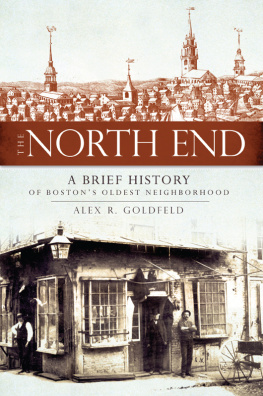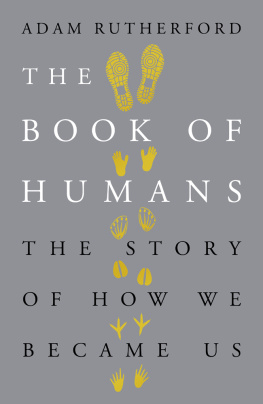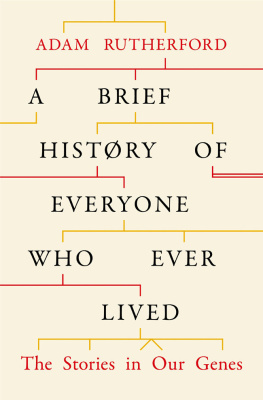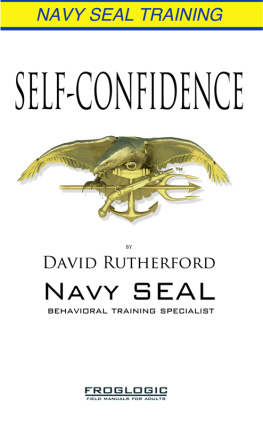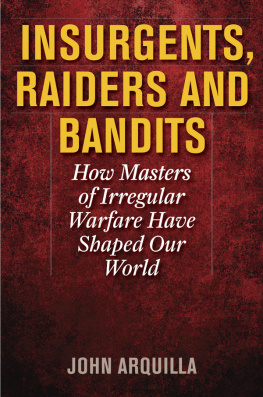Alex Rutherford - Raiders from the North
Here you can read online Alex Rutherford - Raiders from the North full text of the book (entire story) in english for free. Download pdf and epub, get meaning, cover and reviews about this ebook. genre: Adventure. Description of the work, (preface) as well as reviews are available. Best literature library LitArk.com created for fans of good reading and offers a wide selection of genres:
Romance novel
Science fiction
Adventure
Detective
Science
History
Home and family
Prose
Art
Politics
Computer
Non-fiction
Religion
Business
Children
Humor
Choose a favorite category and find really read worthwhile books. Enjoy immersion in the world of imagination, feel the emotions of the characters or learn something new for yourself, make an fascinating discovery.

- Book:Raiders from the North
- Author:
- Genre:
- Rating:3 / 5
- Favourites:Add to favourites
- Your mark:
- 60
- 1
- 2
- 3
- 4
- 5
Raiders from the North: summary, description and annotation
We offer to read an annotation, description, summary or preface (depends on what the author of the book "Raiders from the North" wrote himself). If you haven't found the necessary information about the book — write in the comments, we will try to find it.
Raiders from the North — read online for free the complete book (whole text) full work
Below is the text of the book, divided by pages. System saving the place of the last page read, allows you to conveniently read the book "Raiders from the North" online for free, without having to search again every time where you left off. Put a bookmark, and you can go to the page where you finished reading at any time.
Font size:
Interval:
Bookmark:

Alex Rutherford
Raiders from the North
Samarkand

Main Characters
Baburs parents, siblings, grandmother and uncle
Ahmed, King of Samarkand, Baburs uncle
Esan Dawlat, Baburs maternal grandmother
Jahangir, Baburs half-brother
Khanzada, Baburs older sister
Kutlugh Nigar, Baburs mother
Umar-Shaikh, King of Ferghana, Baburs father
Baburs wives
Ayisha, daughter of the chief of the Mangligh clan
Maham, Baburs favourite wife and mother of Humayun
Gulrukh, mother of Kamran and Askari
Bibi Mubarak, daughter of the chief of the Yusufzai clan
Dildar, mother of Hindal
Baburs sons
Humayun
Kamran
Askari
Hindal
Baburs cousins
Azar Khan, nobleman of Ferghana
Mahmud, Prince of Kunduz
Mirza Khan, chieftain of Ferghana
Tambal, nobleman of Ferghana
Baburs inner circle
Baburi, a former market boy and Baburs closest friend
Baisanghar, originally an officer of Samarkand, subsequently Baburs loyal commander and, even later, father-in-law
Kasim, one of Baburs political advisers, often used by him as an ambassador
Wazir Khan, milk-brother to Baburs father and Baburs guide and chief mentor in his childhood and early years as king
Abdul-Malik, a physician
Ferghana
Baba Qashqa, comptroller of the royal household
Baqi Beg, court astrologer
Fatima, chief waiting woman
Qambar-Ali, vizier
Rehana, an old woman whose grandfather rode with Timur to sack Delhi
Roxanna, concubine of Baburs father and mother of Jahangir
Walid Butt, Esan Dawlats steward
Yadgar, Baburs favourite inhabitant of a Ferghana brothel
Yusuf, keeper of the treasury
Baburs tribal leaders
Ali-Dost, a chieftain from western Ferghana
Ali Gosht, Baburs master-of-horse and later chief quartermaster
Ali Mazid Beg, lord of Shahrukiyyah
Baba Yasaval, warrior from near Herat
Hussain Mazid, headman of Sayram and cousin of Ali Mazid Beg
Baburs chief enemy in Central Asia
Shaibani Khan, powerful leader of the Uzbek clans and blood enemy of Baburs people and all those descended from Timur
Persia
Shah Ismail of Persia
Mullah Husayn, Shiite mullah serving Shah Ismail
Turkey
Ali-Quli, master-gunner
Kabul
Bahlul Ayyub, grand vizier
Haydar Taqi, keeper of the Royal Seal
Muhammad-Muquim Arghun, chief of the Hazaras
Wali Gul, guardian of the Royal Treasuries
Hindustan
Buwa, mother of Sultan Ibrahim Lodi
Firoz Khan, Hindustani warlord
Gwalior royal family, owners of the Koh-i-Nur diamond, the Mountain of Light
Rana Sanga, Hindu ruler of the Rajput state of Mewar
Sultan Ibrahim Lodi, ruler of the great Delhi Sultanate and overlord of Hindustan
Roshanna, Buwas serving woman
Baburs ancestors
Genghis Khan
Timur, known in the West as Tamburlaine from a corruption of Timur-i-Lang, Timur the Lame
Mountain of Light
I do not write this to complain; I have written the plain truth. I do not write to praise myself but to set down exactly what happened. In this history I have been determined to write truthfully about everything. As a consequence I have set down all that is good or bad I have seen of father, kinsman or stranger. Reader, pardon this. .
Diary of Babur, Founder of the Moghul EmpirePart I
Chapter 1
In a small dusty fortress in Central Asia in the summer of 1494, the baked-mud battlements, grey as elephants hide in daytime, were pinkening before Baburs eyes with the sunset. Far beneath, the Jaxartes river gleamed a dull red as it flowed westward across the darkening plains. Babur shifted his weight on the stone step and returned his attention to his father, the king, who was pacing the fortress walls, hands clasped against the turquoise fastenings of his robes. His face was working excitedly as he launched into the story his twelve-year-old son had heard so many times before. But it was worth the retelling, Babur reflected. He listened carefully, alert for the new embellishments that always crept in. His lips moved with his fathers when the king reached the climax the one part that never changed, each of its grandiose phrases sacrosanct.
And so it happened that our ancestor the great Timur Timur the Warrior, whose name meant Iron and whose horses sweated blood as he galloped through the world won a vast empire. Though he was so cruelly injured in his youth that one leg was longer than the other and he walked with a limp, he conquered from Delhi to the Mediterranean, from wealthy Persia to the wildernesses along the Volga. But was that enough for Timur? Of course not! Even when many years were upon him, he was still strong and robust in body, hard like a rock, his ambition boundless.
His final enterprise was ninety years ago against China. He rode out with the thunder of two hundred thousand horsemen in his ears and victory would have been his, had Allah not summoned him to rest with him in Paradise. But how did Timur, this greatest of warriors greater even than your other ancestor Genghis Khan do all this? I see the question in your eyes, my son, and you are right to ask it.
The king patted Baburs head approvingly, seeing that he held his complete attention. Then he resumed, voice rising and falling with poetic fervour.
Timur was clever and brave but, above all, he was a great leader of men. My grandfather told me that his eyes were like candles without brilliance. Once men looked into those slits of muted light they could not turn away. And as Timur gazed into their souls he spoke of glory that would echo through the centuries and stir the lifeless dust that would be all that was left of their bones on earth. He spoke of gleaming gold and shimmering gems. He spoke of fine-boned women whose black hair hung like curtains of silk such as they had seen in the slave markets of his capital of Samarkand. Above all he spoke of their birthright, their right to be the possessors of the earth. And as Timurs deep voice flowed over and around them, visions filled their minds of what was theirs for the taking until they would have followed him through the burning gates of hell.
Not that Timur was a barbarian, my son. The king shook his head vigorously so that the fringe he liked to leave hanging from his maroon silk turban swung from side to side. No. He was a cultured man. His great city of Samarkand was a place of grace and beauty, of scholarship and learning. But Timur knew that a conqueror must let nothing no one stand in his way. Ruthlessness ruled his soul until the job was done and the more who knew it the better. He closed his eyes, picturing the glory days of his magnificent ancestor. He had worked himself into such a lather of pride and excitement that beads of sweat were bursting out on his forehead. He took a yellow silk scarf and mopped it.
Exhilarated as usual by the images his father had conjured, Babur smiled up at him to show he shared the same joyous pride. But even as he watched, his fathers face changed. The fervent light in his dark eyes faded and his expression grew despondent, even brooding. Baburs smile faltered. His fathers story usually finished with this paean to Timur, but today the king continued, his tone bleak, the vibrancy gone.
Next pageFont size:
Interval:
Bookmark:
Similar books «Raiders from the North»
Look at similar books to Raiders from the North. We have selected literature similar in name and meaning in the hope of providing readers with more options to find new, interesting, not yet read works.
Discussion, reviews of the book Raiders from the North and just readers' own opinions. Leave your comments, write what you think about the work, its meaning or the main characters. Specify what exactly you liked and what you didn't like, and why you think so.


